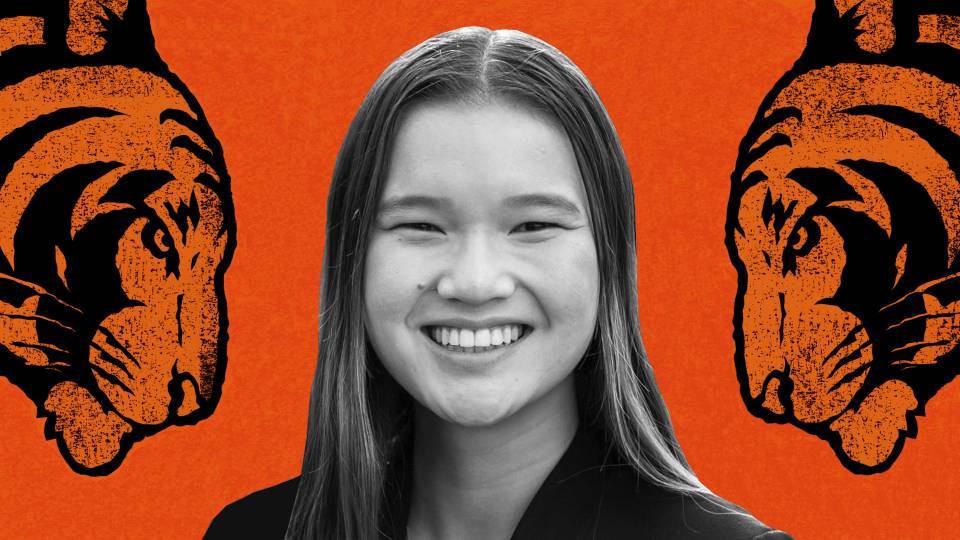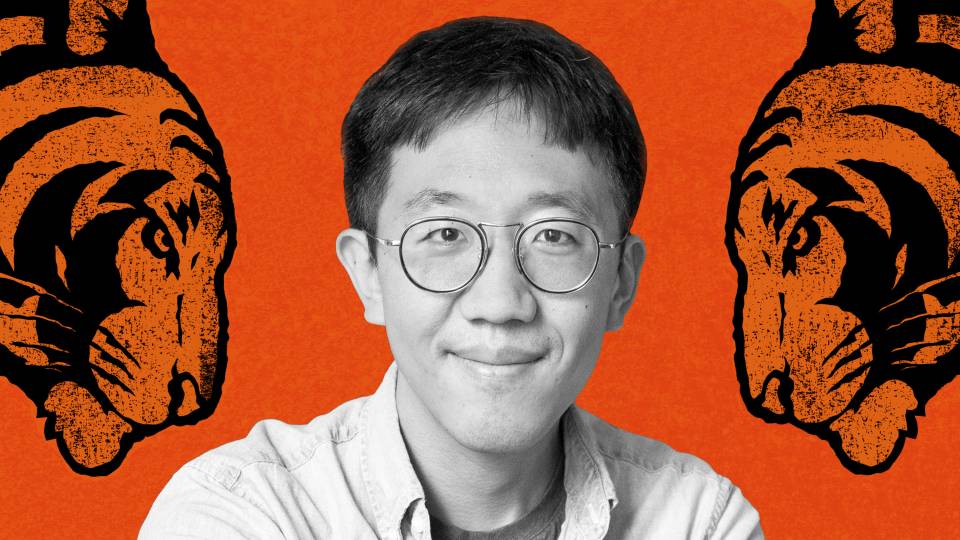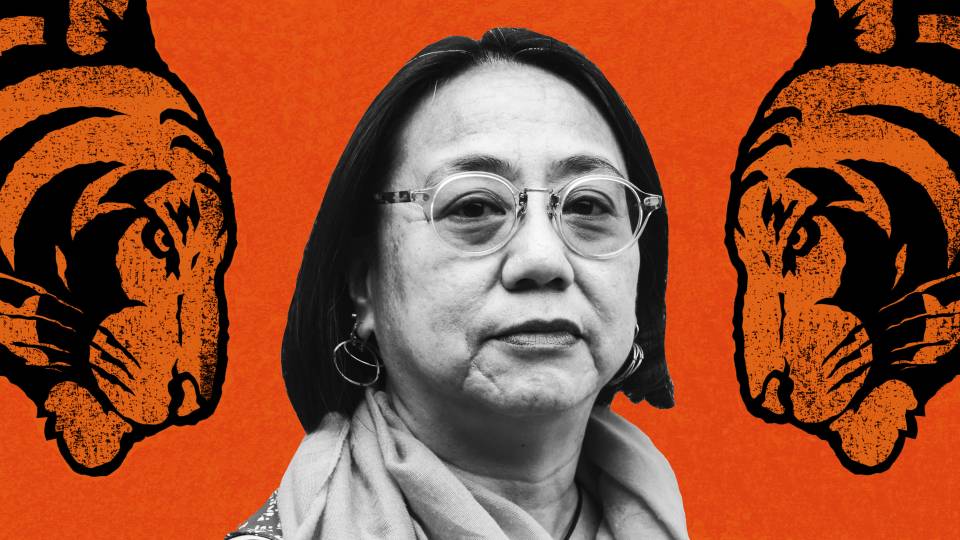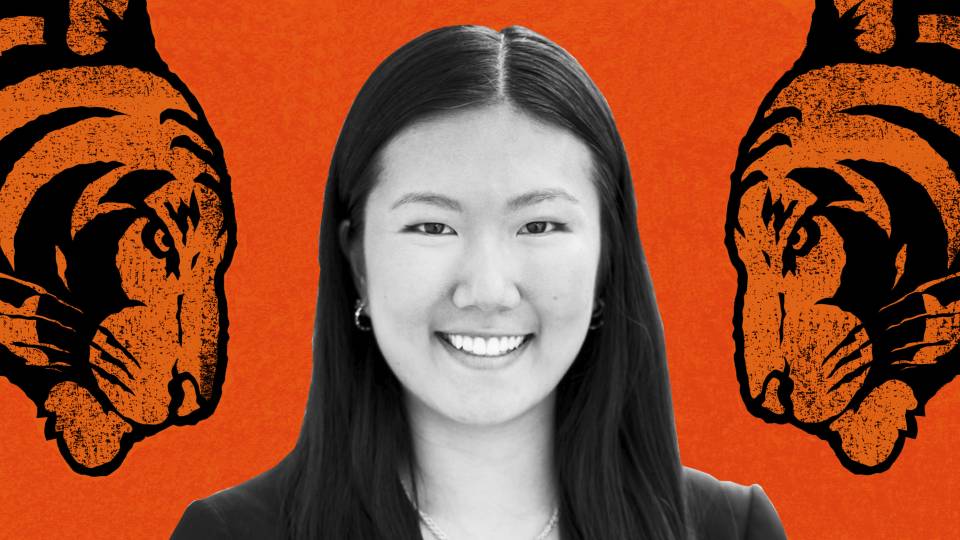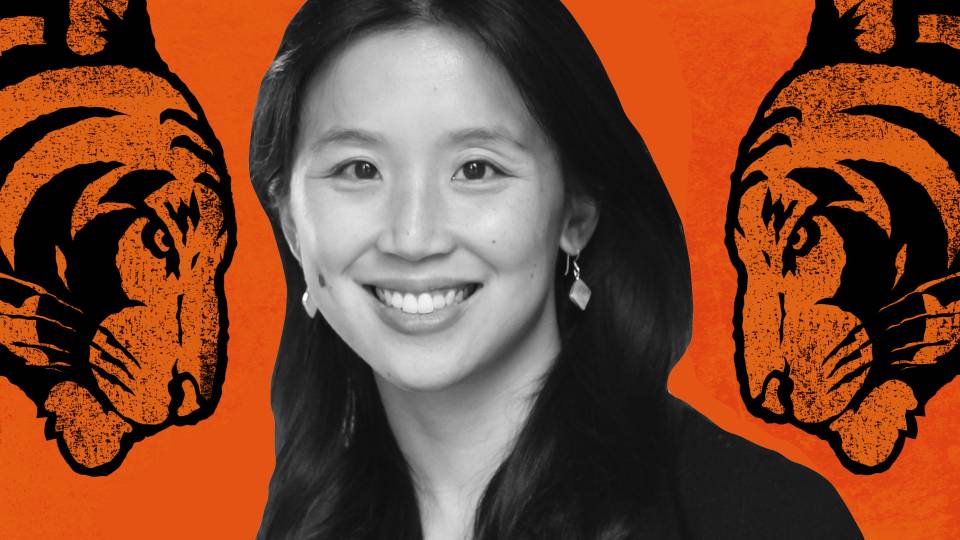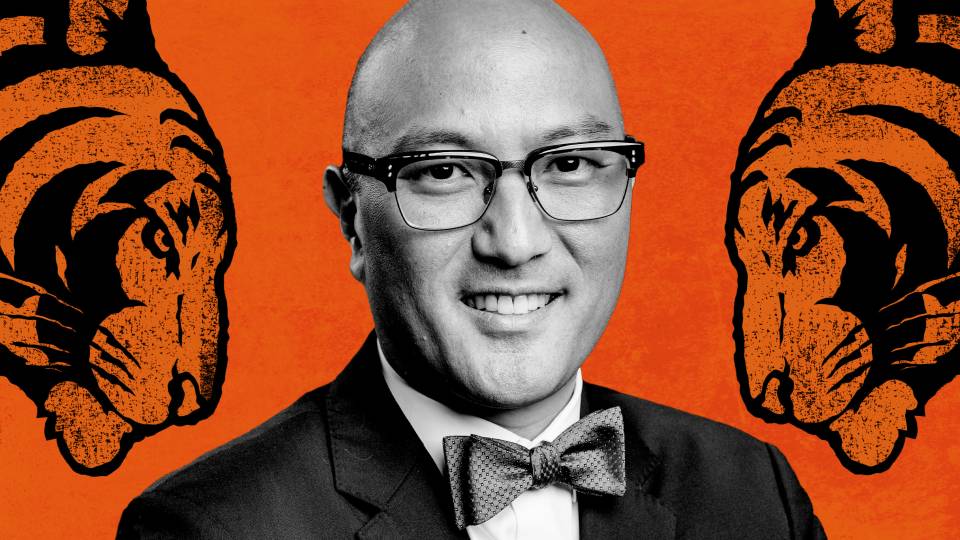The Year of the Tiger that launched with this Lunar New Year is a moment of pride and reflection for Princeton’s vibrant Asian and Asian American community. Throughout the year, we are elevating the voices of faculty, staff, students and researchers in a series of thoughtful interviews exploring questions of identity, pride, hope, the lived experience of anti-Asian racism, and meaningful steps that allies can take.
We continue the series with Mami Akiyama, who joined Princeton in 2015. She is the assistant to the chair of the Department of Astrophysical Sciences and the assistant to the visiting Japanese liaison/senior researcher of the National Institutes of Natural Sciences (NINS), Japan. She is a member of two Employee Resource Groups (ERGs): Asian Staff at Princeton (AS@P), where she serves as secretary, and the International Employee Group at Princeton (IEGAP), a group of employees with diverse ethnicities and cultural backgrounds. She is also a member of the Department of Astrophysical Sciences Climate Committee, which aims to improve equity and inclusion in the department.
How do you self-identify?
I was born in Japan and grew up in New York City. I'm a Japanese national with a permanent residency in the U.S. I immigrated to America with my parents and older sister when I was 10. I was plucked from living in the city of Nara in a very homogeneous suburban world and then suddenly transplanted to a new world in Astoria, Queens. Nara is one of the ancient capitals of Japan (between 710 and 784 CE), known for its beautiful Buddhist temples, Shinto shrines, Big Buddha and the roaming deer in the Nara Park, which are allowed to roam free. I became a New Yorker growing up among Greek and Italian neighbors. At home in Queens, I was raised in the environment where all my family members spoke exclusively in Japanese, but outside, I lived in an English-speaking American society.

Akiyama (bottom row, second from right) with her kindergarten class in the city of Nara, Japan.
Growing up in America, I feared that people might tease me because my Japanese first name, spelled "Mami," would be pronounced as "Mommy" by English speakers. So, I added an "e" at the end of my first name for Mamie to make it sound Americanized. It was a familiar name for many Americans because of Mrs. Mamie Eisenhower, the wife of former President Eisenhower. Since then, people often responded to me with a big smile, saying, "Mamie, I'll never forget your name!"
After marrying a Japanese national, I decided to identify myself with my Japanese given name "Mami" consistently to avoid confusion, but at the same time, I could hardly fathom the possibility of departing from my long-time familiarized American name, "Mamie." So, I came up with a solution to offer people to call me either Mami or Mamie. Why is it so important to maintain both names? It's simple. Because these names define who I am: A Japanese national who has assimilated to living in a multicultural society in the United States.
I have fond memories of attending the High School of Art and Design in Manhattan, commuting on the subway every day among diverse groups of people, and hearing different languages being spoken all around me. Racism, xenophobia, and violence were nearly nonexistent at my high school, even though it was very diverse. What kept us together was a sense of community — having a similar goal and passion for learning art. In a city that championed diversity, the concept was not a "melting pot," where everyone needed to conform by losing one's own unique identity, but rather it was like the beautiful colors of mosaic tiles. We celebrated the differences in each other. After graduating from the Fashion Institute of Technology, I started working as a creative coordinator and later became a senior art buyer of Dentsu Young and Rubicam, a Japanese and American joint-venture advertising agency in New York City. I've always treasured my Japanese heritage and identity.
But I can share a sad story related to my Japanese background. When I was a child, answered the phone at home more often than my Japanese-speaking parents. I recall receiving anonymous phone calls from what appeared to be the same person who yelled at me, saying, "Remember Pearl Harbor!" I believe he must have spent a lot of time going through the phone directory looking for people with Japanese-sounding last names. At last, I got a whistle and blew it hard at the dial-phone handset as soon as I heard the unfamiliar voice of a stranger, saying, "Remember …." This was, in fact, an intimidating experience for a little girl like me, but I never shared such an incident with my parents as I was one of the typical immigrant kids who didn't want to burden their parents as much as possible.
What makes you proud to be an Asian living in America?
I am greatly proud of a variety of remarkable contributions that Asians have made to U.S. society, a pride nurtured, in particular, by my participation in local Japanese American communities in New York.
I had never been aware of the existence of local Asian American communities until I became a college student in the early 1980s. One day, one of my Japanese-speaking neighbors invited me to the Japanese American United Church (JAUC), where she enjoyed singing in the choir. This Japanese-and-English-speaking church in Manhattan, located on Seventh Avenue, has more than 100 years of rich history. Her invitation gave me an opportunity to meet young adult Japanese Americans and Japanese nationals of my age. This was a major turning point in my life.

Akiyama immigrated to the U.S. with her family when she was 10, settling in Astoria, Queens. She attended high school and college in New York City.
The congregation back then had a unique combination of different generations of Japanese Americans and Japanese nationals. The oldest generation included pre-WWII immigrants from Japan in their 80s and 90s, called Issei (the first generation). Most Issei seniors spoke only Japanese, although some spoke English to some extent. The following generation, in their 50s and 60s, are known as Nisei (the second generation) and were born in the United States. Issei and Nisei were the generations who suffered from the hardship of being sent to the internment camps in the U.S. during WWII. Nisei's children are called Sansei (the third generation), and they were in their 20s and 30s. They spoke primarily English because Issei, their parents, wished to raise them as Americans. Most Sansei did not speak Japanese as they grew up solely in an English-speaking environment.
At JAUC, I was privileged to get to know two of the Issei and Nisei individuals who greatly contributed to the Japanese American community in the United States. One is Henry Sugimoto, an Issei artist. He secretly drew the lives of Japanese Americans inside the concentration camp during WWII. He intended to record the accurate history of people there, using any cloth materials he could find as canvasses. His artworks are kept as part of the Smithsonian National Museum of American History collections in Washington, D.C.
The other person is George Yuzawa, a Nisei human rights and social activist. He dedicated his life to the battle against racial discrimination against Asians and the improvement of the social welfare of Japanese Americans in the New York City area. The George Yuzawa Papers are housed in the Asian/Pacific/American Institute at New York University.
What can allies and others do to counter anti-Asian American racism?
"Be in solidarity" with the victims and "stay engaged" in relevant communities.
Be in solidarity. It is important to show solidarity with those victimized by racism in our society. In May 2020, when the killing of George Floyd occurred, all the Employee Resource Groups (ERGs) of the University came together in solidarity and made a racial equality statement, voicing that we must fight against social injustice and racism. When the violence against Asian and Asian Americans surged in March 2021, the Asian Staff at Princeton (AS@P) immediately convened a meeting and declared a solidarity statement. The AS@P is one of the ERGs, created to serve the needs of the diverse community of Asian administrative staff members. Allies and others can play a significant role by standing in solidarity with those mistreated or discriminated by racial prejudice. I believe in the power of solidarity. I believe it can make a great difference by making these issues more visible and increasing the level of people's awareness of human rights in society.
Stay engaged. Staying engaged is the key for someone who wishes to become an ally to the Asian American community. To me, this means expanding my own horizon by getting actively involved in the ERGs such as the AS@P and the IEGAP. You can be engaged by participating in their activities, which include a range of events, workshops and seminars, and are open to everyone. I am afraid that Asians may tend to be in their own silos and that we are not really good at asking for help from others. So, I believe we should encourage more people to participate in the ERG communities on campus. For Asian administrative staff, the AS@P is one of the best ways to stay engaged.
The University is a large community, and being plugged into a small sub-community can be greatly enriching. There are many ERGs to choose from — there are groups for Latinos, Princetonians of color, women, LGBTQ+ individuals, veterans and more. I think we all need a community where we feel a natural sense of belonging.
Are there examples from what you’re involved in to counter anti-Asian American racism that empower you?
I can name the AS@P workshop led by Calvin Chin, director of Counseling and Psychological Services, as one of the best examples. In his workshop, I learned about a vital role that bystanders can play in a situation where they perceive an aggressor potentially committing racial harassment or where people may be hurt. He summarized the recommended role of bystanders into three simple words: Distract, Delegate and Direct (the 3 D's):
- Distract. Distract the aggressor from the situation. In some cases, this could be approaching the victim being harassed and starting a conversation with them.
- Delegate. Delegate specific tasks for help to other bystanders. This could be asking other bystanders to call the police or the store manager, depending on a particular situation. The probability of other bystanders getting involved would be higher when specific tasks are given to them.
- Direct. Directly intervene to stop the harassment from being exacerbated. This could be directly telling the perpetrator, "That isn't OK" or "Please stop."
Knowing the 3 D's could be helpful for everyone.
